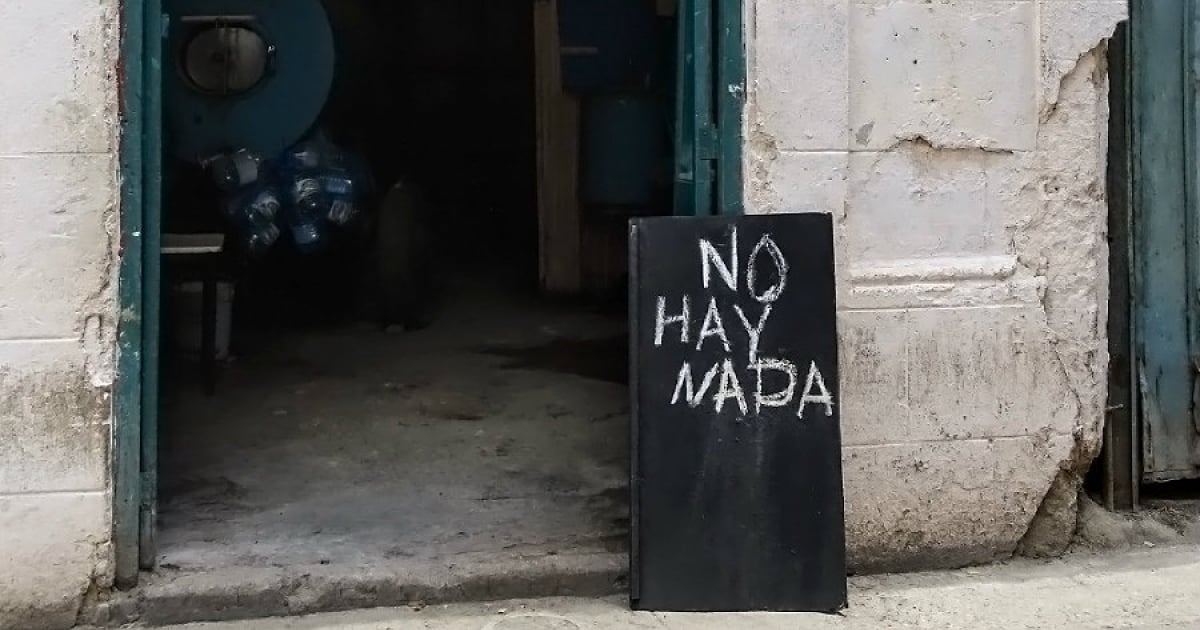
As Cyclone Rafael approaches Cuba, thousands of Cubans find themselves in a state of extreme vulnerability due to the lack of essential resources to face the storm.
This is compounded by the concern of not knowing whether their homes will withstand the cyclone's onslaught; the desperation of witnessing shortages in their pantries; and the helplessness from the lack of fuel for cooking, in case they have to endure several days without power.
The economic difficulties and lack of basic supplies have left a large part of the population without the means to implement the minimum recommended protective measures in the event of a hurricane.
Rafael approaches: Preparations limited by a lack of resources.
Cyclone Rafael threatens with strong winds and torrential rains, and could cause serious damage in a country where infrastructure and living conditions for many homes are already at their breaking point.
The current economic situation prevents many families from adequately preparing for the storm and highlights serious structural issues in Cuba.
Essential measures that many Cubans will not be able to comply with:
- Storing non-perishable foodsThe scarcity of basic products such as bread, cookies, cold cuts, and canned goods, along with the high prices of the few items available in the country, makes it impossible for many families to stock up for the critical days ahead.
- Save fuelThe shortage of liquefied gas and coal for cooking is another serious problem, limiting the ability to prepare the few foods that families may have at home. Moreover, these days vehicle owners are paying high prices for the gasoline or oil essential for urgent transportation.
- Collect drinking water.In many households, access to drinking water is very limited, and infrastructure for water storage is scarce. This is compounded by issues in the aqueduct system, which already faces limitations and could be further affected by the passage of the cyclone.
- Reinforce the housing.Most homes have not received maintenance in decades, and many are in a state of advanced deterioration. These vulnerable buildings, lacking proper renovations or repairs, are extremely fragile when faced with the impact of a cyclone, leaving many families at risk of losing their homes.
- Organize an evacuation plan.The scarcity of fuel severely impacts the ability to evacuate in a timely manner to safe areas. With insufficient public transportation and limited personal resources, many families rely on the "government's management," which can often be nonexistent; on assistance from acquaintances, or on luck to find a way to transport their belongings.
The greatest risk in this cyclone is from flooding. The country is facing serious issues with its water supply and sewage systems. This, combined with the cubic meters of garbage on the streets, could overwhelm the drainage system and worsen the flooding.
Millions of Cubans live surrounded by trash, a long-standing problem that poses serious risks of pollution and the spread of diseases due to runoff from rain.
Despite the authorities' calls to stay informed and follow the Civil Defense guidelines, the reality is that the lack of basic resources makes it unfeasible to adhere to these recommendations in much of the country.
In this context, solidarity and mutual support among family and friends emerge as the only survival strategies for many Cubans in the face of the imminent threat of Hurricane Rafael.
What do you think?
COMMENTFiled under: